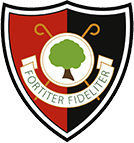Music
Why we study Music
Music is a universal language that embodies one of the highest forms of creativity. We aim to engage and inspire students to develop a love of music and their talent as musicians, and so increase their self-confidence, creativity and sense of achievement. As students’ progress, they should develop a critical engagement with music, allowing them to perform as a soloist and part of an ensemble, compose in a variety of styles, and to listen with discrimination to the best in the musical canon.
Our Aim
The Music Department aims to develop students’ musical understanding and enjoyment of music by actively engaging with music. A wide range of enrichment activities are available, and we encourage students to take a musically active part in the life of the school.
These topics need to be covered to give students the opportunity to perform in groups and as individuals as well as to learn about musical history and genres. The order these topics are taught in will help develop their skills through Key Stage 3 to give them choices at Key Stage 4 – particularly if they already play an instrument/sing.
Students will be exposed to as many different composers and styles of music as possible throughout Key Stage 3 to widen their appreciation of music and inspire them to listen to music they may not have heard before
Music has many transferable skills; teamwork, independent work, creativity, presenting skills, time management – for rehearsal, ICT skills, awareness of other cultures.
Road Map


| YEAR 7 |
YEAR 8 |
- Autumn Term
Elements of Music and instruments of the orchestra
- Reading and writing music (staff notation)
- Developing analytical skills through listening and writing about music learning about the Romantic Period (listening exercise based on Saint-Saens Carnival of the animals)
- Instruments of the orchestra how instruments work, what family they belong to and why, their role within the orchestra. Students will also learn about instruments that are not in an orchestra such as pop rock instruments
- Basic keyboard skills pianists and keyboard players are able to bring their own music from instrumental lessons to further stretch them
- Writing a Christmas Carol students will develop an understanding of what a chord is, composing a chord sequence, melody, song structure, singing skills and ensemble skills
- Students who play instruments will be encouraged to bring these in for composition and to show others how they work
|
Autumn Term (half termly topics)
The Blues
- The history of the blues, why it is sung and how it came to exist
- Performing skills – how to perform a 12 bar blues chord sequence, walking bass line and improvisation
- Composing – ensemble composition/performance. Students compose a blues song showing the development of composing using features a 12 bar blues, lyric writing in an AAB structure
- There will be opportunities for students to listen to Blues music each lesson and hear how it developed into Rock ‘n’ Roll and music in the modern day
Bass lines and hooks
- Learning about popular and Baroque music which use repeating bass lines
- Performing as part of a large ensemble (whole class). Students will perform a piece called Time Lapse using keyboards. Pianists and keyboard players will be stretched by taking on leading roles and performing more complex parts
- Developing music notation skills
- Developing listening skills, comparing music with repeating bass lines from different eras with different purposes
|
Spring Term
Music from different cultures
- Keyboard – solo performance
- West African Drumming – features of the style, performing as a class and group, composing in groups using knowledge of the style and listening/analysis of a piece called Yiri from Burkina Faso
- Gamelan Music from Indonesia. Focus on performing as a class and being able to play different parts, listening to each other and following the directions of a conductor (Kendhang player) History of the style and the rules of the music
|
Spring Term (half termly topics)
- Film Music
Students will develop their knowledge of how film music is used to enhance the visuals on screen and techniques used by composers to make music for film
Students will work individually or in a pair to compose music to fit with a scene from a film using GarageBand. This is a project to cover the whole half term.
- 20th Century Music
Students will study the history behind 20th Century Art Music with a particular focus on Aleatoric music and Minimalism
Compositions in both areas – staff notation
Performance of Aleatoric Music
Composition for minimalism
Developing listening skills – being able to recognise different styles of Art Music and describe the features used
|
|
Summer Term (two half termly projects)
Ukulele Skills
- Students will learn how to use the ukulele, with a focus on playing chords, strumming patterns and singing/playing at the same time
- Students will work as an ensemble to put together a song using ukulele and their voices
- Ukulele and guitar players will be given material to stretch their existing skills
- Focus for this half term will be on performance skills
|
Summer Term (half termly projects)
Performance techniques
- Developing ensemble and solo performance skills to create a full-length piece of music
- Students can use their own instruments, or voice, keyboard and ukulele
- Choices will be given for material to focus on for the half term
- Those students who already play instruments may use music from their instrumental/vocal lessons as a focus for the project
Reggae
- Students will learn about the features of reggae music and the history behind it as well as other styles of music which influenced the genre
- Whole class performance of a reggae inspired piece
- Listening assignment comparing traditional reggae with a piece in a reggae style
|
Staff Contact
Mrs S Homewood - sally.homewood@oxted.thpt.org.uk



